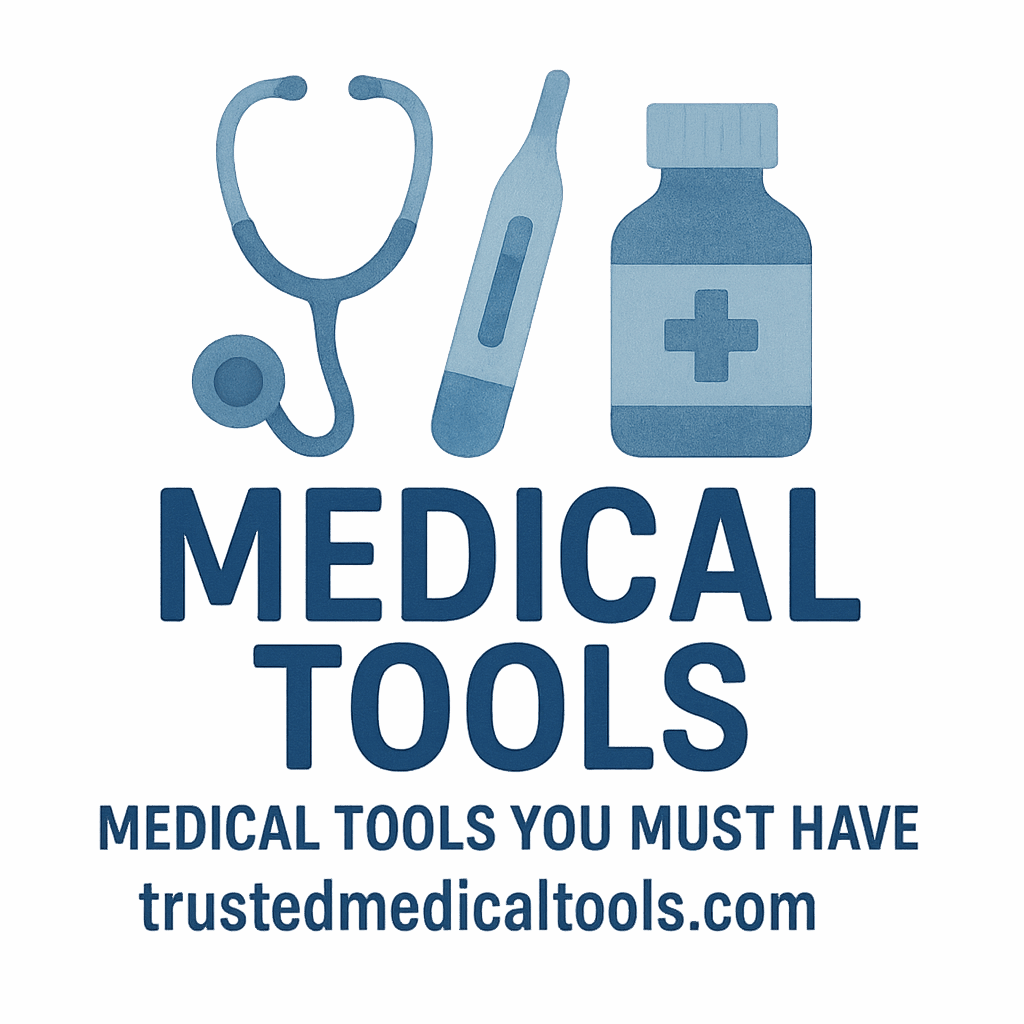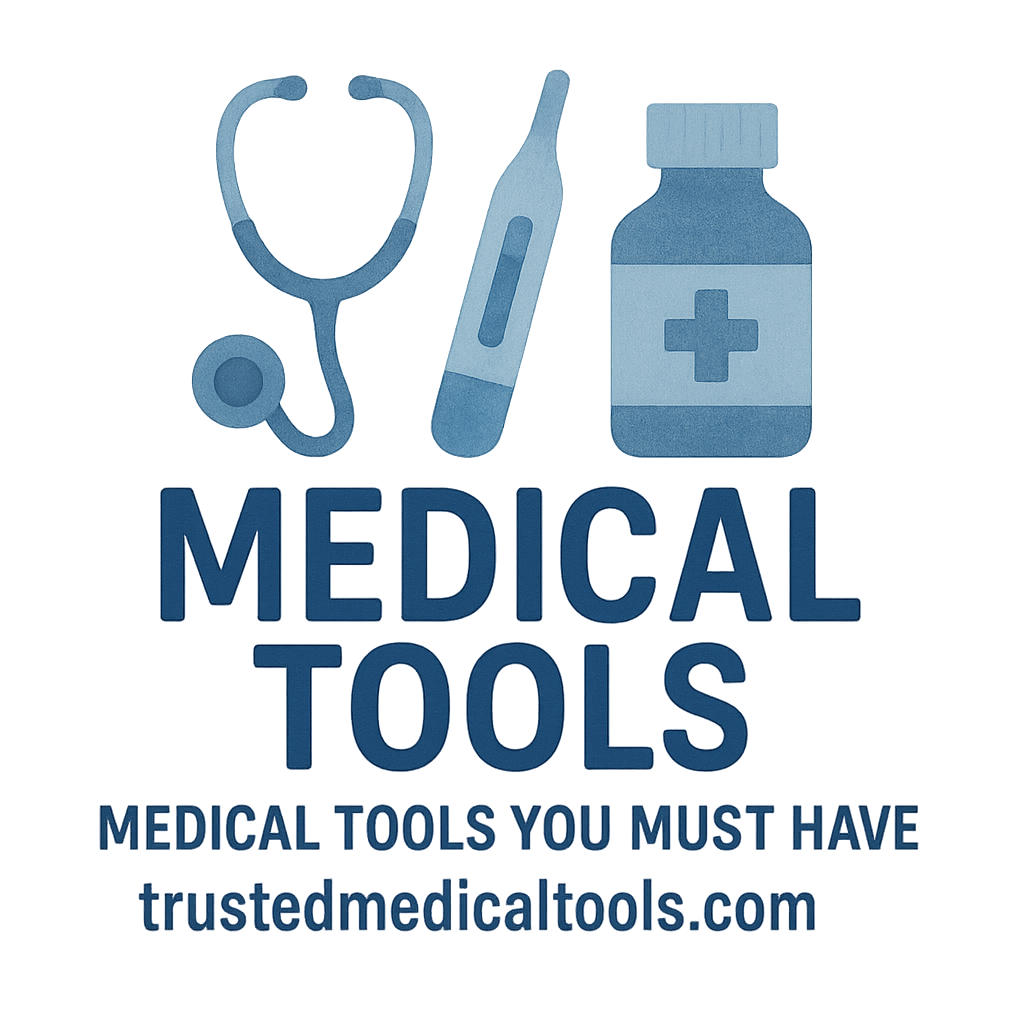Introduction to Digital Medical Tools
As technology continues to advance, digital medical tools are becoming an essential part of home healthcare. These tools not only provide convenience but also enhance the accuracy of health measurements. Whether you’re monitoring your blood pressure, checking your temperature, or tracking your weight, digital tools make it easier to manage your health with precision. In this article, we’ll explore five digital medical tools that significantly improve the accuracy of health readings at home.
Why Accuracy in Home Healthcare Matters
The Impact of Accurate Measurements
Accurate health measurements are crucial for understanding your body’s current state. Whether it’s monitoring chronic conditions like hypertension or simply ensuring your temperature is within a healthy range, having precise data helps in making informed decisions about your health. Incorrect readings can lead to unnecessary stress or, worse, missed diagnoses that could affect your well-being.
The Role of Technology in Home Health Care
Technology has revolutionized healthcare by offering tools that enable individuals to take charge of their health at home. With digital medical devices, you can monitor your health regularly, track changes over time, and even consult with a healthcare professional using accurate data. This trend toward home healthcare not only saves time and money but also ensures better long-term health outcomes.
Top 5 Digital Medical Tools for Home Use
Digital Thermometers
A digital thermometer is an essential tool for any home healthcare setup. It provides accurate temperature readings quickly, helping you track any fever or abnormal body temperature.
Benefits of Digital Thermometers
Unlike traditional mercury thermometers, digital thermometers are easy to use, more accurate, and safer. They provide quick results (usually within seconds), and many models have memory functions that store previous readings. Additionally, digital thermometers can be used to measure temperature in various ways: orally, under the arm, or rectally.
Choosing the Right Digital Thermometer
When selecting a digital thermometer, you should look for features like ease of use, speed, and accuracy. Some models also have flexible tips for comfort and may offer features such as fever alerts or waterproof designs. For more detailed options, check out the buying guide on Trusted Medical Tools.
Blood Pressure Monitors
High blood pressure is a common issue, and monitoring it regularly is essential for managing cardiovascular health. A digital blood pressure monitor offers a simple, accurate way to measure your blood pressure at home.
Features to Look for in Blood Pressure Monitors
When selecting a blood pressure monitor, ensure it has an easy-to-read display and provides accurate readings consistently. Some monitors offer additional features such as heart rate detection and irregular heartbeat alerts. Models that are cuff-based tend to offer the most reliable results.
How Accurate Are Digital Blood Pressure Monitors?
While digital monitors may not always match the accuracy of professional equipment, they provide sufficiently precise readings for everyday use. Calibration and proper technique are key to ensuring accurate measurements. For more insights into these devices, check out monitoring devices for detailed product recommendations.
Glucose Meters
For those with diabetes, a glucose meter is an indispensable tool. Digital glucose meters provide accurate blood sugar readings, which are essential for managing the condition and avoiding dangerous spikes or drops.
Why Accurate Glucose Measurements Matter
Accurate glucose readings help diabetics maintain healthy blood sugar levels and avoid complications associated with poorly managed diabetes. These devices give real-time feedback, allowing you to adjust your diet or medication accordingly.
Choosing the Best Glucose Meter for Home Use
Look for glucose meters that offer consistent accuracy and ease of use. Some models have Bluetooth capabilities, allowing you to sync your data with apps that track your progress. For an in-depth guide on glucose meters, see family care.
Pulse Oximeters
Pulse oximeters are small devices that measure the oxygen saturation level in your blood, which is a critical indicator of your respiratory health. These tools are especially useful for people with lung conditions like asthma or COPD.
The Role of Pulse Oximeters in Monitoring Oxygen Levels
Pulse oximeters work by shining a light through your fingertip to measure how much oxygen is in your blood. This is crucial for monitoring respiratory conditions, ensuring that you receive enough oxygen, and identifying potential issues early on.
How to Use a Pulse Oximeter Correctly
To get an accurate reading, make sure the oximeter is placed properly on your finger, and that your hand is still and at room temperature. Many models also display your pulse rate along with oxygen levels. For a comprehensive list of pulse oximeters, visit the health equipment section.

Smart Scales
Smart scales go beyond just measuring your weight—they provide a comprehensive view of your health by tracking body fat percentage, muscle mass, and even bone density.
Benefits of Smart Scales for Health Monitoring
These scales sync with apps on your smartphone, helping you track your health metrics over time. They can also give you a better understanding of your overall body composition, which is more important than just your weight alone. Smart scales are excellent for those who are managing their health and fitness goals.
Features to Consider When Buying a Smart Scale
Look for scales that offer multiple metrics and can sync with other health apps. Some models even provide personalized insights based on your body composition, which can be helpful in planning your fitness regimen.
How Digital Medical Tools Help Maintain a Healthy Home Environment
Monitoring Chronic Conditions at Home
Digital medical tools can make managing chronic conditions much easier. By regularly monitoring your health at home, you can detect any changes early, which allows you to adjust your treatment plans accordingly. Devices like digital thermometers, blood pressure monitors, and glucose meters are excellent for ongoing health monitoring.
Enhancing Wellness with Technology
In addition to tracking existing conditions, digital tools can also support your overall wellness. For example, smart scales and pulse oximeters help you monitor your fitness progress and ensure your body is functioning at its best. With the help of these devices, achieving and maintaining optimal health becomes easier and more accurate.
Conclusion
Incorporating digital medical tools into your home healthcare routine can significantly improve the accuracy of your health measurements. These tools not only provide reliable data but also empower you to make informed decisions about your health. Whether you’re managing chronic conditions or simply keeping track of your well-being, having the right tools at your disposal can enhance your overall health management.
FAQs
- What are the most accurate digital thermometers?
- The most accurate digital thermometers are those with a flexible tip, a fast reading time, and features like fever alerts.
- How often should I check my blood pressure at home?
- For most people, checking your blood pressure once a day is sufficient. However, if you have hypertension, your doctor may recommend more frequent monitoring.
- Can I use a pulse oximeter if I don’t have a respiratory condition?
- Yes, a pulse oximeter can be used by anyone to monitor oxygen levels, especially during exercise or when feeling unwell.
- Are smart scales worth the investment?
- Yes, especially if you’re focused on improving your overall body composition and tracking your progress over time.
- How accurate are glucose meters at home?
- While they are highly accurate, it’s essential to calibrate the device regularly and follow proper testing procedures for the most reliable results.
- Can I use a digital thermometer for babies?
- Yes, many digital thermometers are designed specifically for babies and offer fast, non-invasive readings.
- What should I do if my blood pressure monitor gives inconsistent readings?
- Ensure the device is calibrated, and you’re using it correctly. If problems persist, consult the manufacturer’s guidelines or consider replacing the monitor.
For more insights and product recommendations, check out the following links:


